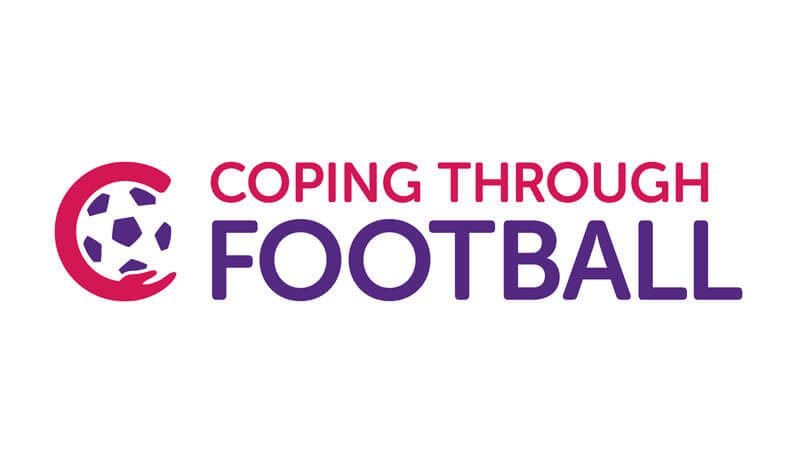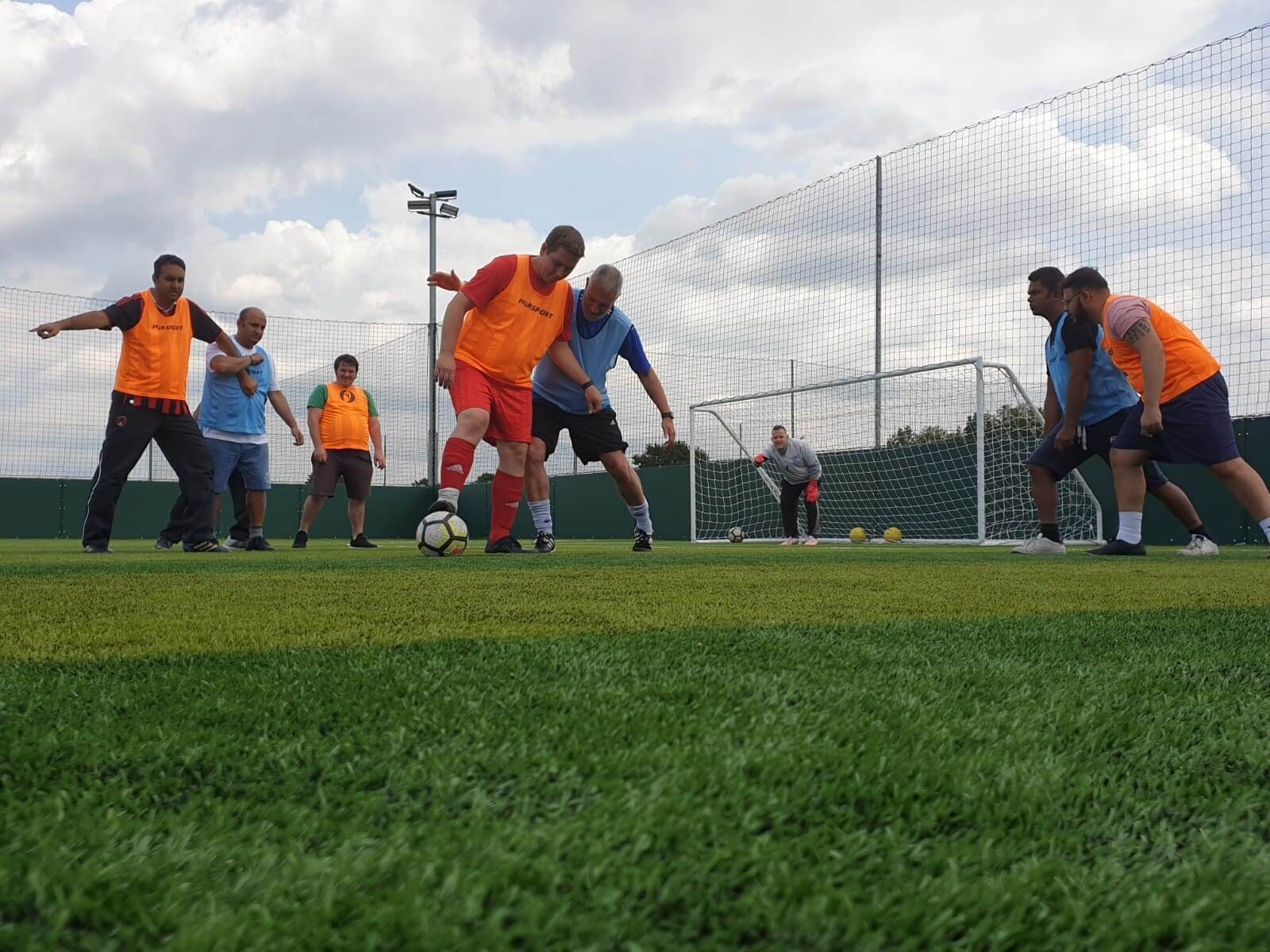


Coping Through Football saved my life. I wouldn’t be here today without it. It gave me a purpose and helped get my endorphins going.
Launched in 2007, we run the project with the NHS and Leyton Orient Trust at our grounds in Waltham Forest and Redbridge. It’s the most evaluated football and mental health intervention in the world.
By bringing mental health clinicians and the people they support together, the project improves people’s lives. It shows how well-managed playing fields can improve community mental health services and is a model which can be replicated by NHS trusts and football clubs across the UK.

Coping Through Football uses football as a therapeutic tool for engaging adults from the London boroughs of Barking and Dagenham, Havering, Redbridge and Waltham Forest with a diagnosed mental health condition. The project also works with 13 to 17-year olds from these areas.
Many participants have anxiety and low self-esteem, and lead isolated lives having lost the confidence and ability to interact with others and to sustain meaningful friendships. They may also experience poor physical health and drug and alcohol addiction.
The project helps the adults it supports to get their lives back on track and young people to avoid more long-term mental health conditions.
The idea is that people living with mental health problems will experience a more sustained recovery if they have a greater capacity to:
Going to Coping Through Football has meant I have to be around strangers which is a huge step for me. I have to practice my assertiveness skills and get used to communicating with other people. Before, I never spoke to anybody at all. Now, I can say ‘Hello’ to people I know and even speak to the new ones I don’t know who come to football.
Staff and coaches from Leyton Orient Trust run six fun and energetic football sessions a week over 50 weeks. They aim to improve fitness and confidence, establish new friendships and support participants to get help from qualified clinicians.
The Project Coordinator, an Occupational Therapist from North East London Foundation Trust, runs health and wellbeing workshops which address issues such as stopping smoking, improving fitness and promoting healthy eating. They monitor participants’ mental health and identify concerns. They also have one-to-one sessions with participants to help them become more independent and socially connected.
Participants discuss their aspirations for work, training and study, and identify other activities to support their recovery with the Project Coordinator and Peer Recovery Worker.
Most participants have poor levels of fitness. By providing an opportunity to play the sport they love several times a week for 50 weeks a year, the project significantly increases the frequency and intensity of their activity levels.
Our Coping Through Football Evaluation Report found that levels of moderate-to-vigorous activity nearly doubled from 181 to 343 minutes a week over six months for participants when they joined the project.
Creating an inclusive environment through good quality community facilities and where everyone is welcome means participants enjoy a sense of belonging which helps them to feel better about themselves. Coming together to play football in an atmosphere that is relaxed, non-judgmental and friendly can reduce stress levels.
Participants forge new, positive and lasting friendships. They can access events such as attending Leyton Orient matches which maximise opportunities to socialise.
Workshops promote healthy eating, stopping smoking, reducing alcohol consumption, sexual health, and addictive behaviours.
Eight out of 10 participants who were dependent on drugs and alcohol reported that involvement in the project helped them remain abstinent or reduce their consumption.
The Project Coordinator proactively supports participants to find activities and roles that help them lead more independent, meaningful lives.
The football sessions provide a setting for participants to meet with care workers to review their progress and plan for the future. Health, social care and education providers can work together to help participants reach their potential.
If you are experiencing mental health issues and live in Barking and Dagenham, Havering, Redbridge or Waltham Forest then, Coping Through Football can help you.
Please contact Project Coordinator Sonia Smith for more information on Sonia.smith@nelft.nhs.uk or 07538 101450.
We accept referrals from practitioners working in the four North East London Foundation Trust boroughs of Barking and Dagenham, Havering, Redbridge and Waltham Forest. There’s also space for people living outside these boroughs.
Download the referral form from the Coping Through Football website.
For more information about session dates and times please see the separate Coping Through Football website.
The clinical costs of running Coping Through Football are covered by the NHS and public health. However, London Playing Fields Foundation has to source funding for the project delivery costs, which includes hiring pitches and paying coaches.
Please contact jo.mckenzie@lpff.org.uk for further information on how you can support this life-changing project.
It’s not a traditional mental health service. A lot of young people are like ‘I’m not sitting on a couch and talking to you’, but if you kick a football around for a bit, they’ll totally tell you everything. It’s a different way to engage young people in a way that they truly enjoy.